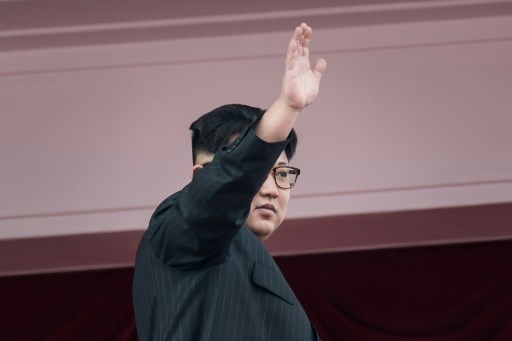Seoul - North Korea has offered to discuss denuclearisation with the United States and consider abandoning its weapons programmes in exchange for security guarantees, according to Seoul, the latest chapter in a rapid Olympics-driven rapprochement on the Korean peninsula.
- Have we been here before? -
Decades of Western attempts to persuade Pyongyang to abandon nuclear weapons have failed.
The 1994 Agreed Framework offered the North civilian nuclear reactors and other assistance in exchange for denuclearisation.
It fell apart after the US accused the isolated state of covertly restarting its weapons programme and aid delays angered Pyongyang, which eventually stormed out.
In 2003 the Beijing-led Six Party Talks began, bringing together the US, both Koreas, Russia, Japan and China in a tortuous process.
North Korea pledged to give up its nuclear programmes in 2005, but carried out its first atomic blast the following year.
It walked out three years later, detonating its second device soon afterwards.
Pyongyang has since continued its weapons drive, accelerating it after Kim inherited power in 2011 from his father Kim Jong Il.
Last year it carried out its sixth nuclear blast and launched missiles it said were capable of reaching the US mainland.
- What happens next?
Two top ranking South Korean officials will travel to Washington on Thursday to brief officials on details of their Pyongyang trip.
National security advisor Chung Eui-yong and spy chief Suh Hoon will meet with President Donald Trump, according to Yonhap news agency.
"We can't reveal everything to the press but we have a separate message from North Korea for the US," Chung told reporters.
More cross-border exchanges are expected between the two Koreas as they prepare for a summit between the North's Kim and South Korean President Moon Jae-in next month.
The two leaders will meet on the southern side of the fortified border village of Panmunjom for what would be only the third inter-Korean summit since the end of the 1950-53 Korean War.
- What will be the sticking points?
North Korea has yet to confirm the concessions Seoul says Pyongyang has offered so its motives are open to interpretation.
What it means by security guarantees and the elimination of military threats against it -- which it says it needs to consider giving up nuclear weapons -- will be crucial.
Previously it has demanded the withdrawal of US troops based in the South and the end of the security alliance between Seoul and Washington, pointed out Go Myong-Hyun of the Asan Institute of Policy Studies.
"If North Koreans again brought this up as a condition for denuclearisation, it’s just the same way as saying that North Korea is not willing to give up their nuclear weapons," he said.
Pyongyang and Washington may also have diverging views on denuclearisation.
The North could seek "a dialogue for peaceful coexistence" with the US, said Koh Yu-hwan, a professor at Dongguk University.
"That's far from the complete, verifiable, irreversible denuclearisation that the US expects," Koh added.
- What happens to the joint exercises?
Both Seoul and Washington say they will press ahead with joint war games after the the Paralympics end on March 18 -- which means they could coincide with the inter-Korean summit.
The Key Resolve and Foal Eagle exercises -- which usually begin in late Feburary or early March -- were postponed as part of Seoul's efforts to draw the North to attend the Winter Games in the South.
Military tensions often run high during the exercises, with the North carrying out its own counter-drills against what it condemns as rehearsals for a war.
But according to a senior official at the South's presidential office, Kim said during Monday's meeting he would "understand" if Seoul goes ahead with the delayed exercises.
- How will it play internally in the North? -
Kim has made atomic weapons a core part of North Korea's political identity.
In his New Year's address -- which began the diplomatic dance -- he declared the development of the state nuclear force "complete".
The North's media made no mention of its new position on Wednesday, but analysts dismissed the possibility of any internal conflict over Kim's offer to put its "treasured sword" up for negotiation.
"It is something only the Dear Leader can say," said Professor Koo Kab-woo of the University of North Korean Studies, adding that it was a "typical" example of Kim's "autonomy".
In his meeting with the South's delegation, Kim referred to denuclearisation as the dying wish of the previous North Korean leaders -- his grandfather Kim Il Sung and father Kim Jong Il -- according to Seoul officials.
"By referring to the wishes of the forefathers, all internal conflict has been eliminated," Koo said, adding: "That's the best card Kim Jong Un can use."



